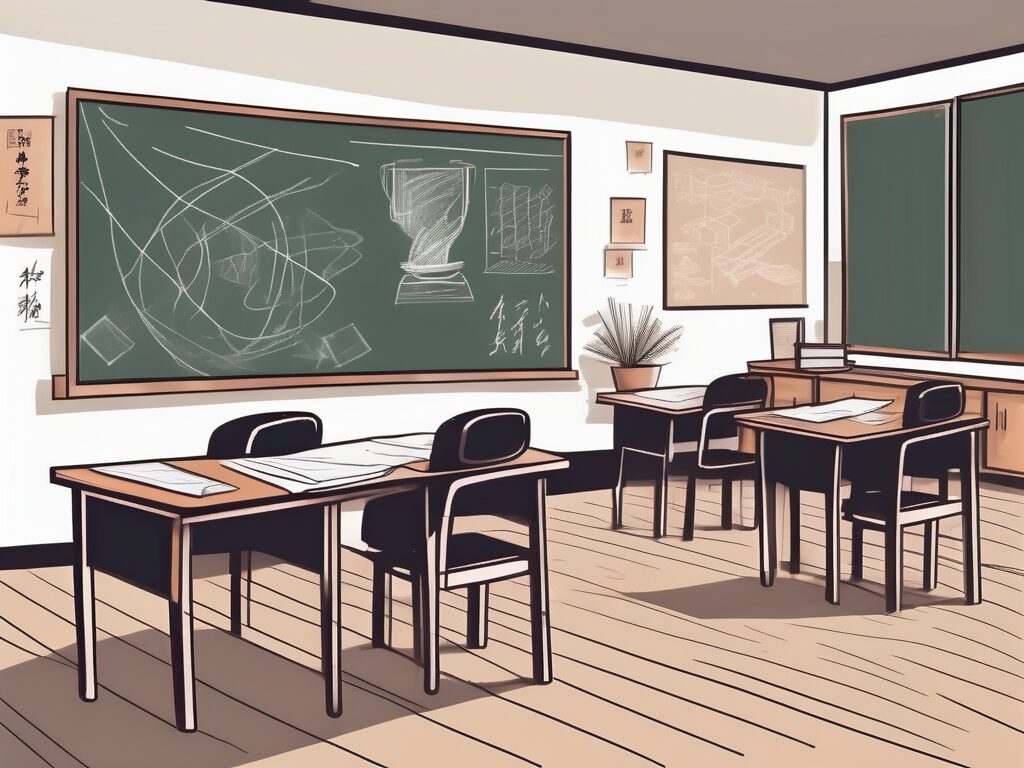The Chinese education system, with its unique blend of traditional values and modern advancements, presents a fascinating study for International Postgraduate Certificate in Education (IPGCE) teachers. However, understanding the government policies that shape this system is crucial for these educators to effectively navigate the teaching landscape. In this exploration, we will delve into five key issues related to these policies.
1. The Gaokao System
The Gaokao Examination
The Gaokao, or the National Higher Education Entrance Examination, is a high-stakes test that determines the academic future of millions of Chinese students. It’s akin to the A-levels in the UK, but with a much higher level of competition and pressure. The Gaokao is a product of the government’s policy to ensure equal opportunity for higher education, regardless of socio-economic background.
Implications for IPGCE Teachers
For IPGCE teachers, understanding the Gaokao system is essential as it shapes the academic focus of their students. The curriculum is often tailored towards this examination, with a heavy emphasis on rote learning and memorisation. This could be a stark contrast to the more discussion-based and analytical teaching methods common in Western education.
2. The Nine-Year Compulsory Education Policy
Policy Overview
China’s Nine-Year Compulsory Education Policy, introduced in 1986, mandates that all children receive at least nine years of formal education. This policy, similar to the compulsory education laws in the UK, aims to ensure that every child has access to basic education.
Implications for IPGCE Teachers
For IPGCE teachers, this policy means that students will have a solid foundation in core subjects such as Chinese, Mathematics, and English. However, it also implies that students might have a more uniform educational experience, which could limit their exposure to diverse teaching styles and perspectives.
3. The Medium of Instruction Policy
Language Policy in Schools
The Chinese government’s policy on the medium of instruction is that Mandarin Chinese should be the language of instruction in schools. This is akin to the English-only policies in many British schools, but with a greater emphasis on preserving national identity and promoting unity.
Implications for IPGCE Teachers
This policy could pose a challenge for IPGCE teachers, especially those who are not fluent in Mandarin. It may require them to adapt their teaching methods and materials to cater to students who are more comfortable with Mandarin as their medium of instruction.
4. The Policy on Private Education
Private vs Public Schools
China’s policy on private education is complex. While the government supports the development of private schools, it also imposes strict regulations on them. This is somewhat similar to the UK, where private schools are subject to regulations but also enjoy certain freedoms.
Implications for IPGCE Teachers
For IPGCE teachers, this policy could affect their employment opportunities and teaching environment. Teachers in private schools might have more flexibility in their teaching methods, but they might also face higher expectations and pressures.
5. The Policy on International Education
International Education in China
The Chinese government has been promoting international education in recent years, with policies encouraging foreign teachers and international collaborations. This is somewhat akin to the UK’s policies promoting international education, but with a more strategic focus on global competitiveness.
Implications for IPGCE Teachers
This policy presents opportunities for IPGCE teachers, as the demand for international education grows in China. However, it also means that they need to be well-versed in the Chinese education system and policies to effectively meet the needs of their students.
In conclusion, understanding these government policies is crucial for IPGCE teachers in China. It not only helps them navigate the teaching landscape but also equips them with the knowledge to provide the best education for their students.
Advance Your Teaching Career with IPGCE
As an IPGCE teacher in China, you’re at the forefront of bridging educational practices between East and West. The IPGCE program is your gateway to not only understanding the intricacies of Chinese government policies but also enhancing your qualifications, increasing your chances for interviews, and propelling your career forward. Embrace the opportunity to connect with a global network of educators, gain a deeper insight into international curricula, and achieve a work-study balance with our flexible online study options. Don’t let stringent qualifications or limited advancement hold you back. Join the UK’s #1 Teacher Training Course today and witness the transformation in your professional journey.

